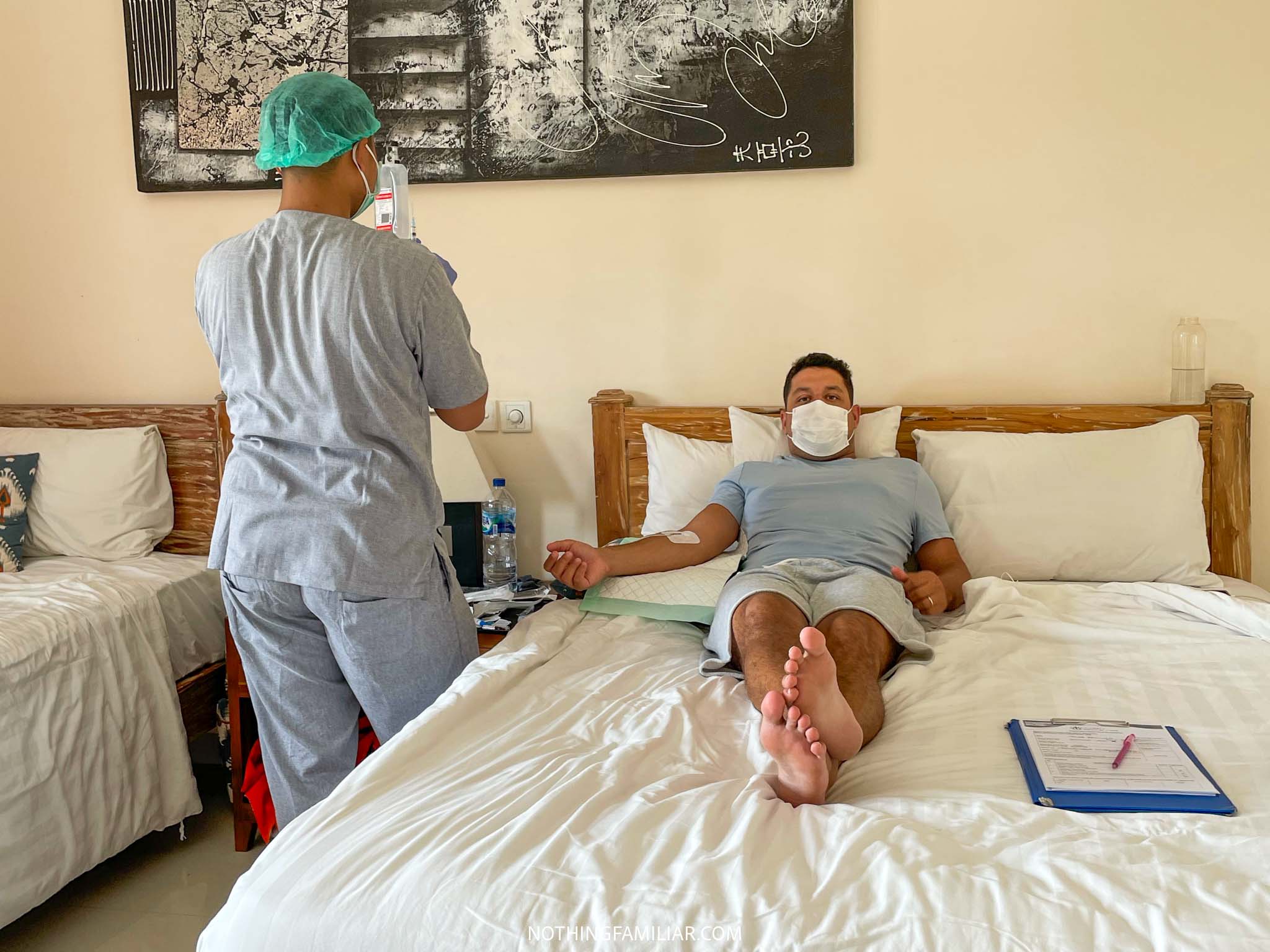Bali Belly: Everything You Need To Know About This Traveler's Illness

Table of Contents
Understanding Bali Belly: Causes and Symptoms
Bali Belly is primarily caused by consuming contaminated food or water. Various pathogens are responsible, including bacteria like E. coli, Salmonella, and Shigella; viruses such as norovirus and rotavirus; and parasites. These microorganisms are prevalent in regions with less stringent sanitation standards.
The symptoms of Bali Belly typically manifest within a few hours to a few days after exposure and can range in severity. Common symptoms include:
- Diarrhea: This is the most prominent symptom, often watery and frequent.
- Stomach Cramps: Abdominal pain and discomfort are common occurrences.
- Nausea and Vomiting: These can lead to dehydration if not managed properly.
- Fever: A low-grade fever is possible, but a high fever warrants immediate medical attention.
- Dehydration: This is a serious complication and can arise from fluid loss due to diarrhea and vomiting.
Less common, but potentially serious symptoms include:
- Bloody stools
- Severe abdominal pain
Here's a summary of Bali Belly severity:
- Mild: Watery diarrhea, mild cramping.
- Moderate: Frequent diarrhea, nausea, vomiting, mild fever.
- Severe: Bloody diarrhea, high fever, severe dehydration, requiring immediate medical attention.
Preventing Bali Belly: Proactive Steps for a Healthy Trip
Prevention is key when it comes to avoiding Bali Belly. By following these simple yet effective guidelines, you significantly reduce your risk:
Food and Water Safety:
- Drink only bottled water: Avoid tap water, ice cubes in drinks (unless made from purified water), and unpasteurized beverages. Consider a reliable water filter for added safety.
- Choose cooked food carefully: Opt for well-cooked meals, ensuring meat, poultry, and seafood are thoroughly heated. Avoid raw or undercooked options.
- Peel your fruits and vegetables: Or choose pre-peeled options from reputable sources to avoid potential contamination.
- Be selective about street food: Avoid street vendors with questionable hygiene practices. Look for busy stalls with high turnover, suggesting fresh food.
- Wash your hands often: Use soap and water whenever possible. Carry hand sanitizer for times when washing facilities aren't readily available.
Vaccinations and Prophylactic Medications:
Consult your doctor or a travel clinic well in advance of your trip. They can advise on any necessary vaccinations and discuss the potential benefits and risks of prophylactic antibiotics or anti-diarrheal medications. Remember, these should only be taken under medical supervision.
Treating Bali Belly: Home Remedies and When to Seek Medical Attention
For mild cases of Bali Belly, rest and rehydration are crucial.
- Rest: Allow your body to recover. Avoid strenuous activities.
- Rehydration: Drink plenty of fluids, including oral rehydration solutions (ORS) – see below for details. Clear broths can also help.
- Avoid solid foods initially: Give your digestive system a break; gradually reintroduce bland foods like rice, toast, and bananas as symptoms improve.
- Over-the-counter medications: Loperamide can help slow down diarrhea, but use it cautiously and follow the dosage instructions precisely. It can mask serious conditions, so consult a doctor first. Note potential side effects like constipation.
When to Seek Medical Attention:
Seek immediate medical attention if you experience:
- Severe dehydration
- Bloody diarrhea
- High fever (above 102°F or 39°C)
- Persistent vomiting (inability to keep down fluids)
- Severe abdominal pain
Untreated Bali Belly can lead to complications such as severe dehydration, electrolyte imbalances, and malnutrition. Always consult a doctor or travel clinic before and after your trip for advice.
Rehydration Strategies for Bali Belly
Rehydration is paramount to preventing serious complications from Bali Belly. Oral rehydration salts (ORS) are specifically formulated to replenish lost fluids and electrolytes. Follow the package instructions carefully to ensure proper dilution. Signs of dehydration include dark urine, dizziness, dry mouth, and decreased urination. Severe dehydration is a medical emergency.
Bali Belly vs. Other Tropical Illnesses
While Bali Belly is common, it's important to distinguish it from other tropical illnesses. Symptoms overlapping with Bali Belly might suggest typhoid, dengue fever, or malaria. If your symptoms don't improve after a few days, or if you experience unusual symptoms like severe headache, rash, or jaundice, seek medical advice immediately to rule out these more serious conditions.
Staying Healthy While Avoiding Bali Belly
Remember, prevention is your best defense against Bali Belly. Prioritizing food and water safety, practicing good hygiene, and seeking medical advice before and during your travels are essential steps to ensuring a healthy trip. Don't let Bali Belly ruin your trip! Follow these tips to protect yourself and enjoy a healthy and memorable adventure in Bali and other tropical destinations.

Featured Posts
-
 Nadals Emotional Roland Garros Farewell Sabalenkas Triumphant Win
May 28, 2025
Nadals Emotional Roland Garros Farewell Sabalenkas Triumphant Win
May 28, 2025 -
 Six Point Swing How A Refereeing Error Impacted The Ajax Vs Az Match
May 28, 2025
Six Point Swing How A Refereeing Error Impacted The Ajax Vs Az Match
May 28, 2025 -
 Cabinets New Rules Raise Concerns Over Homeowner Data Leaks
May 28, 2025
Cabinets New Rules Raise Concerns Over Homeowner Data Leaks
May 28, 2025 -
 American Music Awards 2024 Jennifer Lopez Takes The Stage As Host
May 28, 2025
American Music Awards 2024 Jennifer Lopez Takes The Stage As Host
May 28, 2025 -
 Interest Group Highlights Negative Impacts Of Rent Regulation Changes On Tenants
May 28, 2025
Interest Group Highlights Negative Impacts Of Rent Regulation Changes On Tenants
May 28, 2025
Latest Posts
-
 Does Ai Truly Learn The Reality Of Artificial Intelligence And Ethical Use
May 31, 2025
Does Ai Truly Learn The Reality Of Artificial Intelligence And Ethical Use
May 31, 2025 -
 Debunking The Myth Of Ai Learning Towards Responsible Ai Practices
May 31, 2025
Debunking The Myth Of Ai Learning Towards Responsible Ai Practices
May 31, 2025 -
 Debunking The Myth Of Ai Learning A Practical Guide To Responsible Use
May 31, 2025
Debunking The Myth Of Ai Learning A Practical Guide To Responsible Use
May 31, 2025 -
 The Limits Of Ai Learning Practical Implications For Responsible Ai Use
May 31, 2025
The Limits Of Ai Learning Practical Implications For Responsible Ai Use
May 31, 2025 -
 Misconceptions About Ai Learning Towards A Responsible Approach
May 31, 2025
Misconceptions About Ai Learning Towards A Responsible Approach
May 31, 2025
